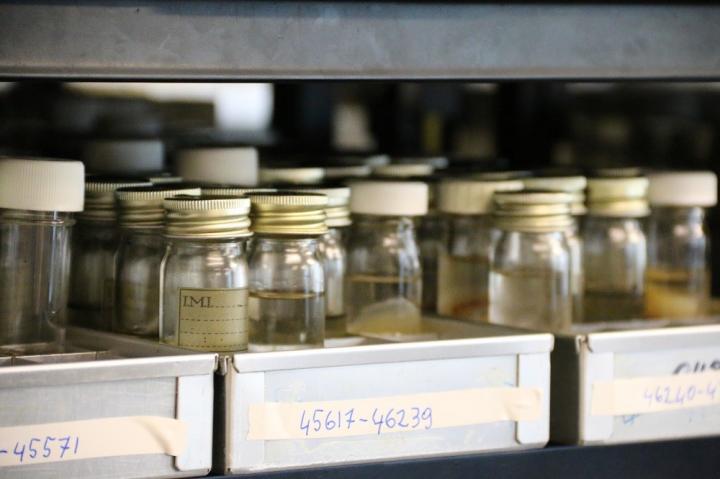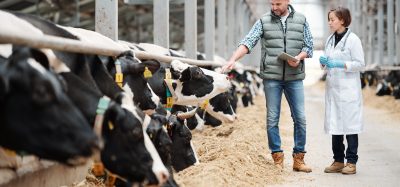Project aims to preserve UK soil microbial biodiversity
- Like
- Digg
- Del
- Tumblr
- VKontakte
- Buffer
- Love This
- Odnoklassniki
- Meneame
- Blogger
- Amazon
- Yahoo Mail
- Gmail
- AOL
- Newsvine
- HackerNews
- Evernote
- MySpace
- Mail.ru
- Viadeo
- Line
- Comments
- Yummly
- SMS
- Viber
- Telegram
- Subscribe
- Skype
- Facebook Messenger
- Kakao
- LiveJournal
- Yammer
- Edgar
- Fintel
- Mix
- Instapaper
- Copy Link
Posted: 15 October 2020 | Bethan Grylls (New Food) | No comments yet
A newly developed facility looks to safeguard important crop microbiome research and enable sustainable production of six major food crops in UK.


The culture collection at CABI where the microbiomes of the UK's major crops will be held and curated
A team of scientists are implementing cyro research techniques in an effort to preserve important crop microbiome samples from various UK soils.
To facilitate this project, some of the UK’s foremost agricultural research institutes have joined forces to develop the Crop Microbiome Cyrobank (UK-CMCB). This will provide the team with a place to source data and samples for their work, including living microbial material, and genomic and metagenomic sequencing (DNA) from different microbiome environments such as the rhizoplane.
“By preserving these valuable crop microbial samples, from a ‘unique snapshot in time,’ we will generate a representative, very valuable and unique resource from key UK crop systems that will become a vital resource for scientific researchers for generations to come,” explained Dr Matthew Ryan, Curator, Genetic Resource Collection at CABI.
“We will be using UK-developed cryotechnology that uses liquid nitrogen to keep the samples secure at very cold temperatures. If you like, it is a ‘Noah’s Ark’ of UK microbes from crop systems and one that has many potential exciting uses.”
All of the project resources will be fully characterised using advanced DNA sequencing techniques in order for scientists to discover what microbes are present, what they are doing in the microbiome, and what role they play in enhancing crop growth. The UK-CMCB will then create a curated database of sample information associated with annotated sequences, meta-data and analytical tools for end-users.
“Soil health is particularly important,” said Dr Tim Mauchline, Plant and Soil Microbiologist at Rothamsted Research. “If we can better understand the function of microbes present in our soils, we can use this information to help farmers produce sustainable crops. There is a clear need to increase food production and reduce our reliance on chemical fertilizers and pesticides. It is imperative that biological solutions are found to help ensure the UK’s food security.”
Related topics
Food Security, Lab techniques, Pesticides, Research & development, Sustainability








